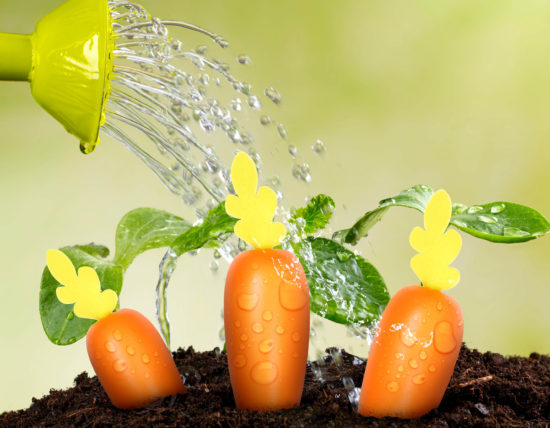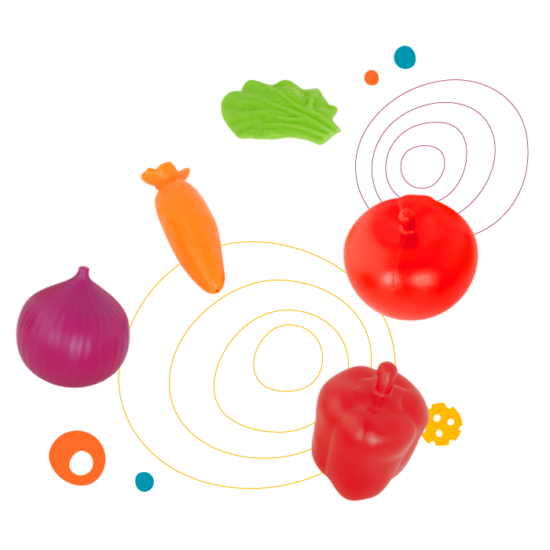Gardening with kids - What to plant this spring

Little ones are curious by nature, and a great way to cultivate that curiosity is gardening! Not only will it encourage children to soak in the spring sunshine, but it can also show them how food or plants are grown, and it can teach them about the natural environment in general.
If you’re getting ready to garden as a family, here are some gardening tips and ideas for what to plant this season!
Outdoor Garden
Gardening with kiddos in the backyard? Contributing to a community garden? Here are a few things to keep in mind.
What you’ll need:
Adult gardening tools may not B. the safest choice for children, so we recommend going for kid-friendly tools. Specifically:
- Shovel
- Rake
- Spade
- Watering can
Don’t forget to add gloves and gardening clothes to the list – it’s a fun activity, but playing in the dirt comes with a side of messiness!
What to plant:
If the little one in your family hasn’t developed a passion for gardening just yet, chances are they won’t want to wait for long periods of time to see the fruits of their labor. So the trick here is to pick plants, veggies, fruits, or flowers that will grow fast! For example:
- Carrots
- Beets
- Green beans
- Radishes
- Lettuce
- Spinach
- Sunflowers
- Petunias
- Marigolds
Indoor Garden
No outdoor garden? No problem! You can still introduce children to gardening on a smaller scale – and in the comfort of your own home. You can even add a touch of crafty fun to the experience by decorating the containers in which you’ll plant the seeds!
What you’ll need:
- Potting soil
- Pots or containers (with holes at the bottom)
- Tray for drainage
- Mini shovel and rake
- Gloves
An outdoor garden will get tons of sunlight, but re-creating that amount of natural light indoors can be tricky! What helps is placing your containers on a sunny, south-facing windowsill or investing in a few grow lights
What to plant:
- Herbs
- Basil
- Chives
- Mint
- Parsley
- Tomatoes
- Celery
- Scallions
- Potatoes
- Sweet peppers

It’s one thing to place a seed in the soil and monitor its growth that way, but you can also show kids how to re-grow veggies from scraps! For example, you can put the root end of a bunch of celery or a scallion in water and watch it grow. Magical!
Lastly, it’s important for kids to know that planting is only a piece of the puzzle. Veggies, berries, herbs, or flowers also need watering and care to make sure they grow successfully. So if children stay involved throughout a plant’s entire journey, the process can teach them about patience and responsibility!
Happy spring gardening from all of us at B. toys!









